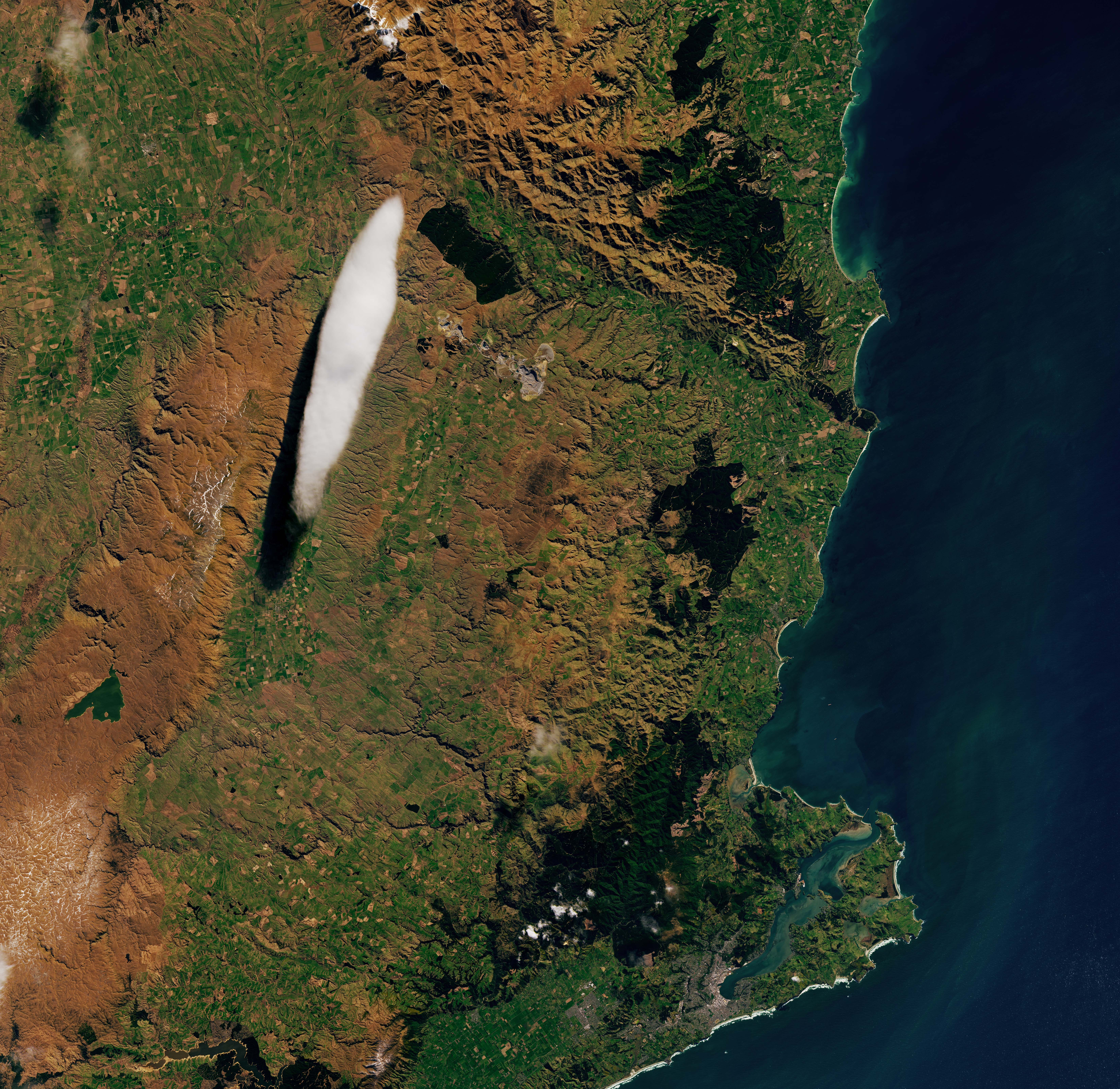SpaceX rocket's first stage crashes
After standing down from the piloted Polaris Dawn launch late Tuesday, SpaceX shifted gears and pressed ahead with plans for back-to-back launches of Starlink internet satellites early Wednesday, one from Florida and the other from California.
But the second flight was called off after the first stage used in the Florida launch toppled into the Atlantic Ocean and broke apart while attempting to land on a SpaceX droneship stationed several hundred miles northeast of Cape Canaveral. The landing mishap ended a string of 267 successful booster recoveries dating back to February 2021.
The Falcon 9's second stage, meanwhile, successfully carried 21 Starlink satellites to their planned orbit.
 A time exposure captures the fiery trail of a Falcon 9 rocket launched from Florida early Wednesday carrying 21 Starlink internet satellites. From this perspective, the rocket appears to arch over the moon and, on the horizon, launch pad 39A at the Kennedy Space Center where another Falcon 9 stands ready for launch to boost the Polaris Dawn crew into space on a privately chartered mission featuring the first non-government spacewalk. The Starlink flight was cleared for launch after Polaris Dawn was grounded by expected bad weather in the crew's splashdown zone.
Michael Cain/Spaceflight Now
A time exposure captures the fiery trail of a Falcon 9 rocket launched from Florida early Wednesday carrying 21 Starlink internet satellites. From this perspective, the rocket appears to arch over the moon and, on the horizon, launch pad 39A at the Kennedy Space Center where another Falcon 9 stands ready for launch to boost the Polaris Dawn crew into space on a privately chartered mission featuring the first non-government spacewalk. The Starlink flight was cleared for launch after Polaris Dawn was grounded by expected bad weather in the crew's splashdown zone.
Michael Cain/Spaceflight Now
The first stage landing appeared normal until the moment of touchdown when more flames than usual were visible around the base of the rocket as it neared the deck. A landing leg immediately collapsed on touchdown and the booster, obscured by fire and smoke, tipped over the side of the landing barge into the Atlantic.
"After a successful ascent, Falcon 9's first stage booster tipped over following touchdown on the A Shortfall of Gravitas droneship," SpaceX said on the social media site X. "Teams are assessing the booster's flight data and status."
It was first stage B1062's 23rd and what turned out to be final launch and landing, a new reuse record. SpaceX is working toward certifying its Falcon 9 first stages for up to 40 flights each.
 A camera mounted on the Falcon 9 first stage captured a view of the droneship A Shortfall of Gravitas a few moments before touchdown. A camera on the droneship shows the landing deck illuminated by the rocket's exhaust as it neared the ship.
SpaceX
A camera mounted on the Falcon 9 first stage captured a view of the droneship A Shortfall of Gravitas a few moments before touchdown. A camera on the droneship shows the landing deck illuminated by the rocket's exhaust as it neared the ship.
SpaceX
 At the moment of touchdown, flames erupted and one landing leg collapsed.
SpaceX
At the moment of touchdown, flames erupted and one landing leg collapsed.
SpaceX
 The rocket than toppled over into the Atlantic Ocean.
SpaceX
The rocket than toppled over into the Atlantic Ocean.
SpaceX
Shortly after the Starlinks launched from Florida were deployed, SpaxeX called off the California launch, planned for 5:58 a.m. EDT, to give engineers more time to review telemetry and video footage, on the lookout for any signs of trouble that could affect other rockets.
"Standing down from our second @Starlink launch of the night to give the team time to review booster landing data from the previous launch," SpaceX said on X. "A new target launch date will be shared once available."
Here are updated Falcon 9 stats through through this morning's Florida launch:
Total Falcon 9 launches to date: 367
Total Falcon Heavy launches to date: 10
Total Super Heavy/Starship launches to date: 4
Falcon 9/Heavy launches this year: 83 (82 F9s, 1 FH)
In-flight Falcon 9/Heavy failures: 2 (06/28/15, 07/11/24)
Successful Falcon 9/Heavy launches in a row: 13
Most successful flights in a row: 344 (between 6/28/15 and 07/11/24)
Starlink launches to date: 190 (181 dedicated flights, 9 mixed payloads)
Starlink launches this year: 58
Starlink satellites launched to date: 6,920
Starlinks with direct-to-cell capability: 136
Starlinks presumed to be working going into latest launch: 6,269*
Payloads launched to orbit this year by SpaceX: 1,548
First stage fleet leader: B1062, 23 flights (booster lost on landing)
California landings to date: 20
Florida landings to date: 54
Droneship landings to date: 267 (not counting today's flight)
Successful booster landings overall: 341
Successful booster landings in a row: 267 (before today's flight)
*Source: https://planet4589.org/space/con/star/stats.html
Bill Harwood has been covering the U.S. space program full-time since 1984, first as Cape Canaveral bureau chief for United Press International and now as a consultant for CBS News.

 By CBS (Science) | Created at 2024-10-29 21:39:41 | Updated at 2024-10-30 07:33:11
2 months ago
By CBS (Science) | Created at 2024-10-29 21:39:41 | Updated at 2024-10-30 07:33:11
2 months ago



